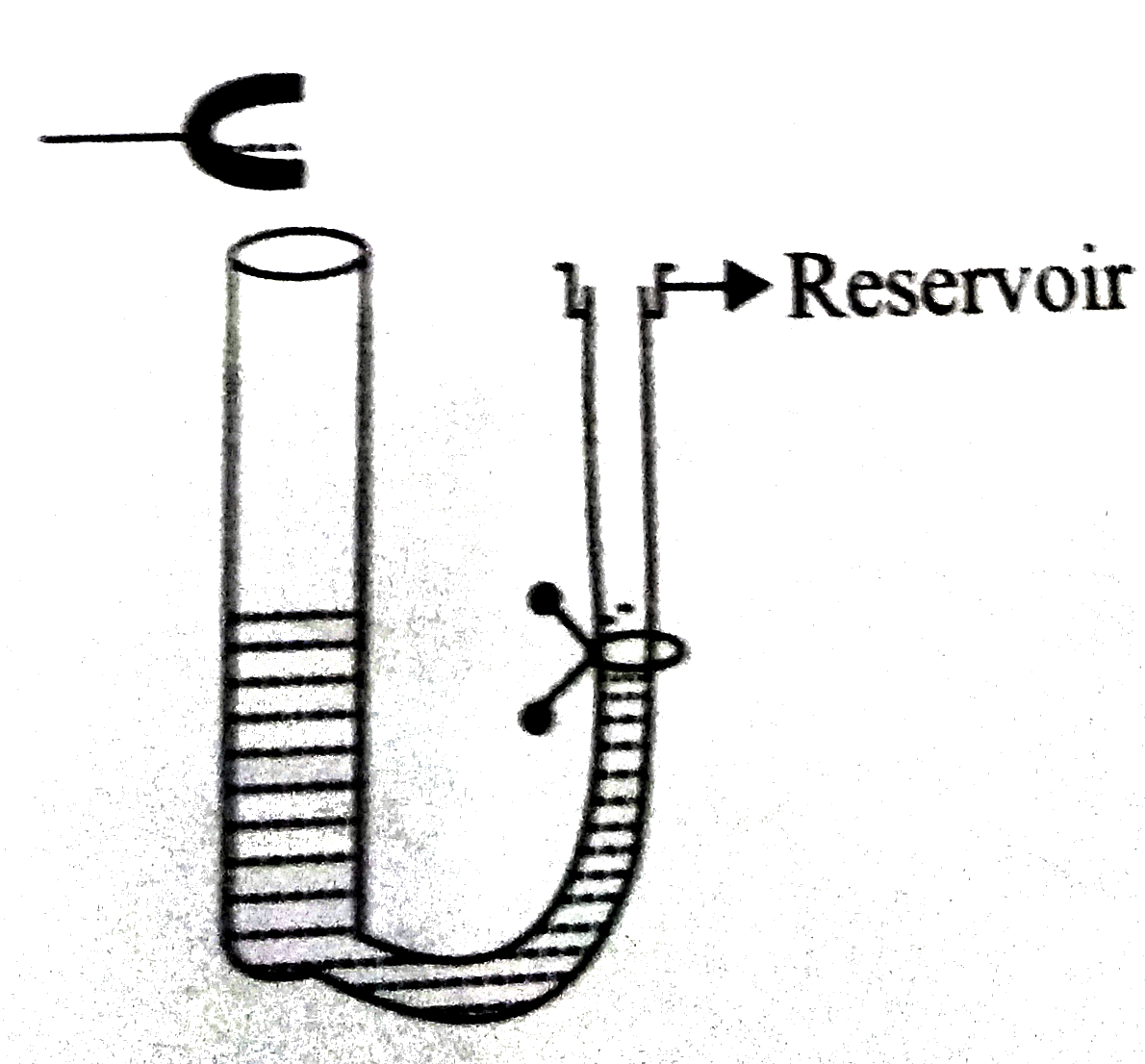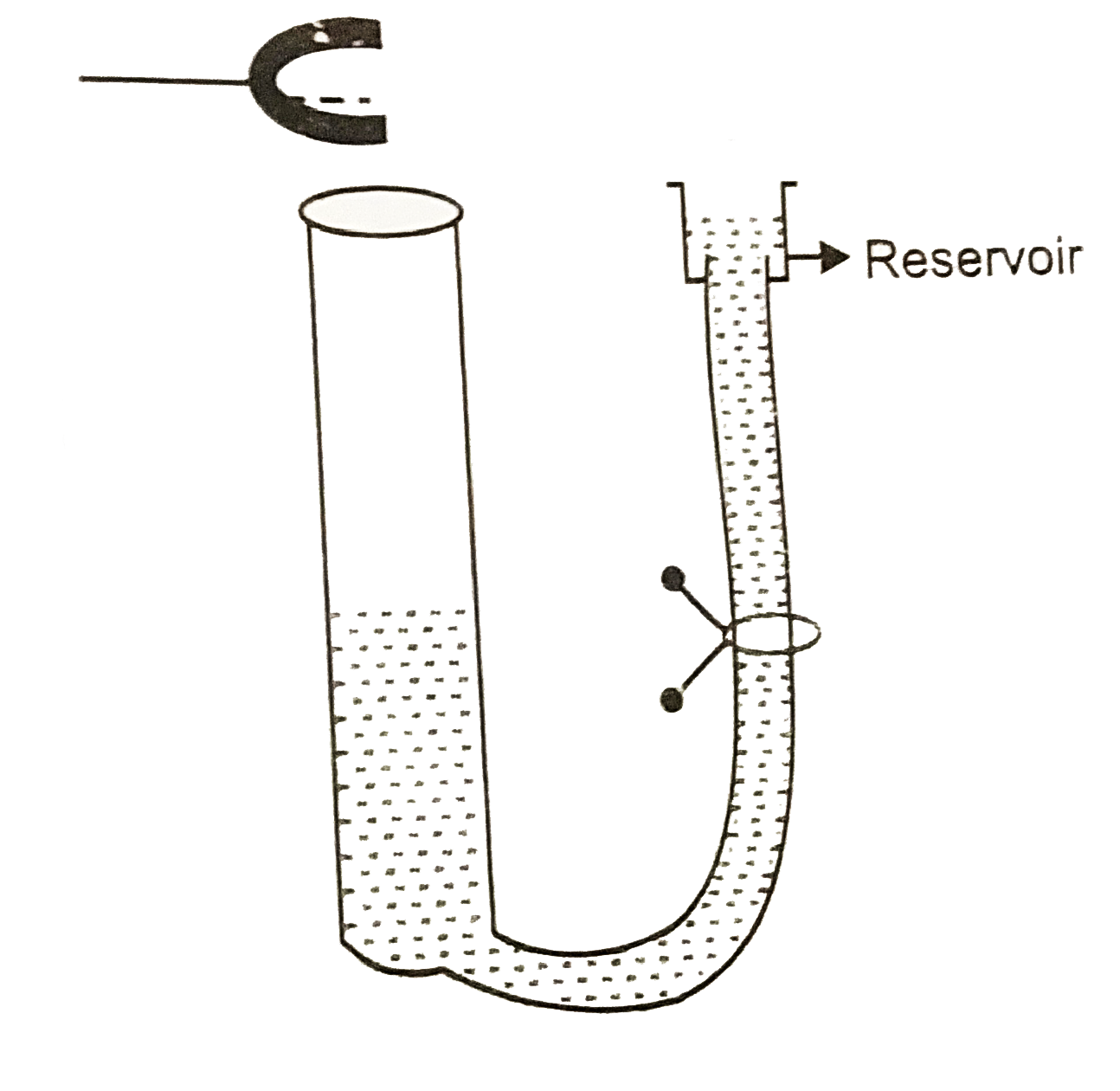A vibrating tuning fork is placed over the mouth of a burette filled with water. The tap of the burette is opened and the water level gradually starts falling. It is found that the sound from the tuning fork becomes very loud for a particular length of the water column.
Why does the sound become very loud for this lenght of the water column?
At a certain length of water column and air column (above water), the frequency of air column and the frequency of tuning fork becomes equal, resonance occurs, amplitude increases hence loud sound is heard.
Topper's Solved these Questions
Similar Questions
A vibrating tuning fork is placed over the mouth of a burette filled with water. The tap of the burette is opened and the water level gradually starts falling. It is found that the sound from the tuning fork becomes very loud for a particular length of the water column.
Name the phenomenon taking place when this happens.View SolutionA vibrating tuning fork is placed over the mouth of a burette filled with water. The tap is opened and the water level gradually falls.
What do you observe ? Name the phenomenon. When does it happen?View Solution
Knowledge Check
- Question 1 - Select One
A tuning fork vibrating with a frequency of 500 Hz is kept close to the open end of a tube filled with water, as shown in figure. The water level in the tube is gradually lowered When the water level is 17 cm below the open to open end, maximum intensity of sound is heard. If the room temperature is 20∘ C, the speed of sound in air at the temperature is
 A1. 330ms−1B2. 340ms−1C3. 350ms−1D4. 360ms−1
A1. 330ms−1B2. 340ms−1C3. 350ms−1D4. 360ms−1 - Question 2 - Select One
A cylindrical vessel of height 500mm has an orifice (small hole) at its bottom. The orifice is initially closed and water is filled in it up to height H. Now the top is completely sealed with a cap and the orifice at the bottom is opened. Some water comes out from the orifice and the water level in the vessel becomes steady with height of water column being 200mm. Find the fall in height(in mm) of water level due to opening of the orifice.
[Take atmospheric pressure =1.0×105N/m2, density of water=1000kg//m^3andg=10m//s^2. Neglect any effect of surface tension.]A6B4C2D8
A vibrating tuning fork, held over an air column of a given length with its one end closed, produces a loud audible sound. Name the phenomenon responsible for it and explain the observation.
View Solution"In a resonance column experiment, when the length of the air column is increased by changing the water level sound heard becomes louder." Why?
View SolutionA stationary wave is set up in a resonance air column of a glass tube partially filled with water by holding a tuning fork near the open end, the open end of the tube is :
View SolutionA student performed the experiment to measure the speed of sound in air using resonance air-column method. Two resonances in the air-column were obtained by lowering the water level. The resonance with the shorter air-column is the first resonance and that with the longer air-column is the second resonance. Then,
A. the intensity of the sound heard at the first resonance was more than at the second resonance
B. the prongs of the tuning fork were kept in a horizontal plane above the resonance tube
C. the ampitude of vibration of the end of the prongs is typically around 1cm
D. the length of the air-column at the first resonance was somewhat than 1/4 th of the wavelength of the sound in air.View SolutionA tuning fork whose natural frequency is 440HZ is placed just above the open end of a tube that contains water. The water is slowly drained from the tube while the tuning fork remains in place and is kapt vibrating. The sound is found to be echanced when the air column is 60cm long and when it is 100cm long . Find the speed of sound in air.
View SolutionA tuning fork vibrating with a frequency of 512 Hz is kept close to the open end of a tube filled with water , figure. The water level in the tube is gradually lowerd. When the water level is 17cm below the open end, maximum intensity of sound in heard. If the room temperature is 20∘C, calculate
(a) speed of sound in air at room temperature.
(b) speed of sound in air at 0∘C
(c) if the water in the tube is replaced with mercury, will there be any difference in your observations?
 View Solution
View Solution

